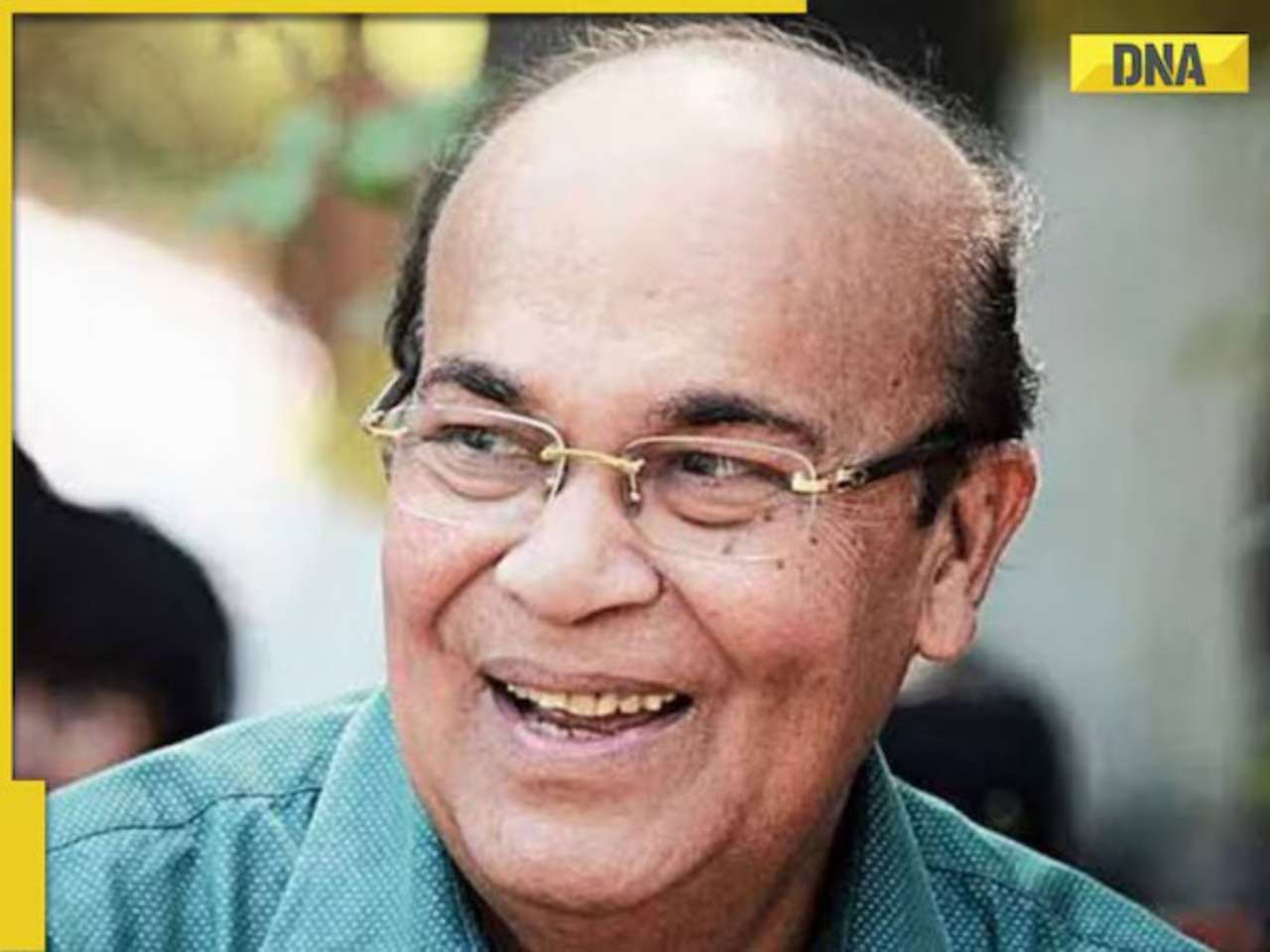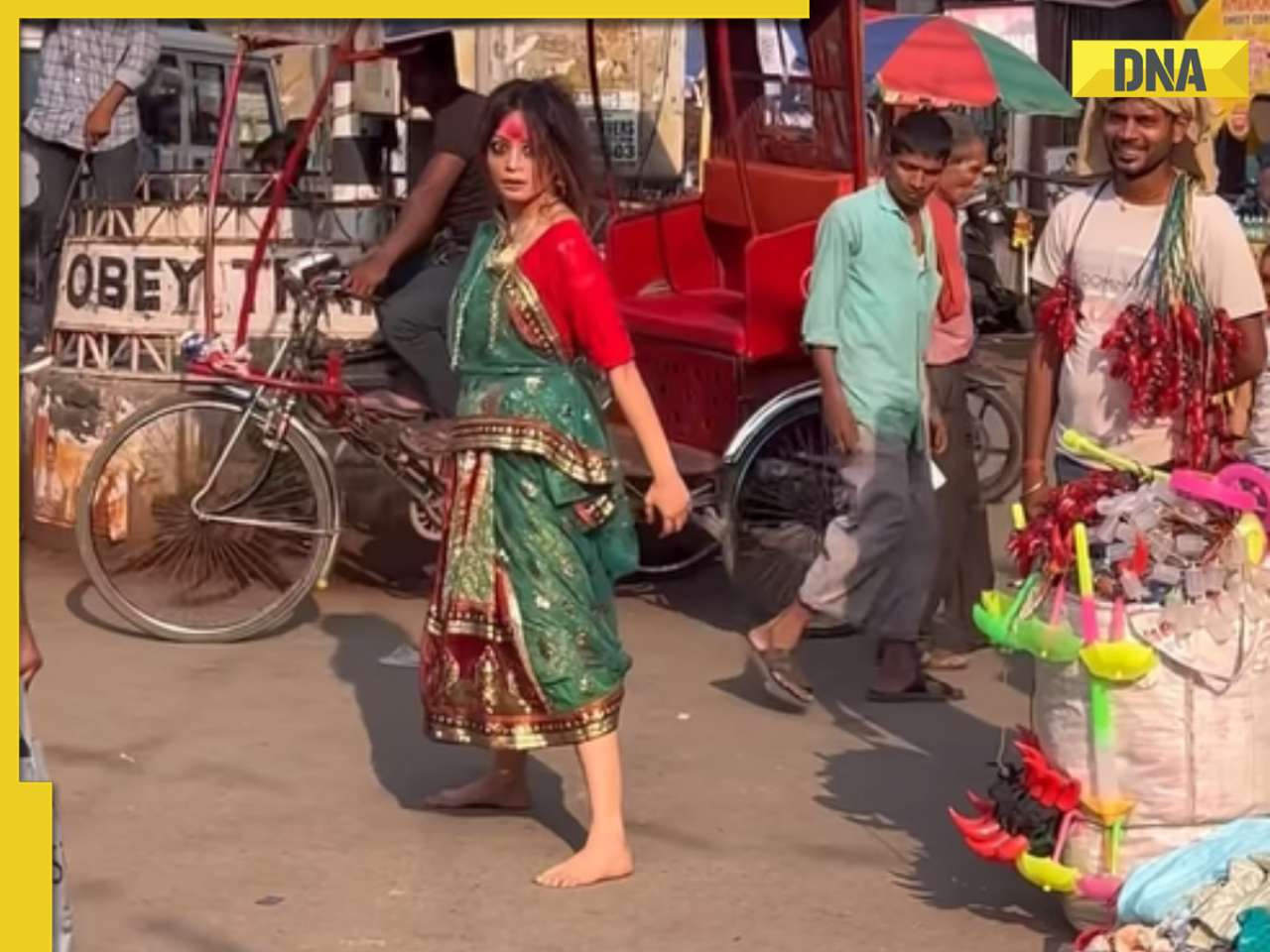With real estate prices set to taper off in the near future, Mumbai’s property tycoons are shifting focus to beat the business cycle. The new buzzword among developers is townships.
MUMBAI: With real estate prices set to taper off in the near future, Mumbai’s property tycoons are shifting focus to beat the business cycle. The new buzzword among developers is townships.
Almost everyone is rushing to buy huge tracts of land on the city’s periphery. Among the target areas are Panvel (50km from the city), Khopoli (89km), Vasai (over 50km), and Virar (60km).
Two factors have triggered the trend. One, the Special Township Scheme (STS) under the Maharashtra Regional and Town Planning Act has removed most of the regulatory bottlenecks in developing land. Among other things, the amended act allows developers to convert agricultural land into a non-agricultural tract automatically, halves stamp duty, and keeps townships out of the purview of the Urban Land Ceiling Act.
Two, it allows builders to scale up and expand their businesses at a regular pace despite booms and busts. “Developers have had to change business models as they started getting listed on stock exchanges,” said the managing director of an international real estate fund who is currently considering several such projects. “Large township projects give them [higher business] volumes and cheap land,” he said. “The projects help developers average out their earnings against real estate cycles. Today, land cost constitutes 60 per cent of the total project cost in metros. It is as low as 20 per cent on the outskirts.”
“Land is scarce in Mumbai and townships give developers scale and volumes along with sops under the Town Planning Act,” said Niranjan Hiranandani, the managing director of the Hiranandani Group.
In the past three months, realtors have gobbled up over 2,500 acres of land in Panvel and surrounding regions. The Evershine Group, known for its 256 acre township near Virar railway station, may be going in for another ambitious project. The developer has purchased around 1,200 acres from a New Mumbai-based property broker, Yogesh Jhawar.
The Hiranandani Group, known for its mega-projects in Mumbai, holds around 250 acres in Rasayani, an industrial town on the Mumbai-Pune highway. Rasayani already hosts the factories of companies such as Reliance, Cipla, and Siyaram. Hiranandani is also in the process of acquiring another 1,000 acres at Thane’s Ghodbunder Road, close to the diversion that links the central suburb to Bhayandar on the western side.
The Neelkanth and Marathon groups, which have developed properties in Ghatkopar and Lower Parel, among other places, have purchased 250 acres and 500 acres, respectively, between Panvel and Khopoli. Other developers, too, are eyeing this 30km stretch.
Pune-based Rohan Group has bought 110 acres of land, about 7km from Panvel station, while the Delhi-based DLF, along with city-based Akruti Nirman, is finalising the purchase of another 1,100 acres. Akruti, known for its slum redevelopment projects in Mumbai, has 400 acres in the area.
Most developers are shopping in Panvel or in its proximity. “This will be the quickest developing region in the future,” said Mukesh Patel, the promoter of the Neelkanth Group. “It is gaining prominence with the announcement of projects such as the international airport, the new passenger train terminal [to decongest terminals in Mumbai], and Reliance’s upcoming special economic zones.”
Patel said when compared with Virar and Vasai, the area has fewer water problems. “Power shortage is expected to ease, thanks to the two power plants being built in the area,” he said. “It takes about an hour and 10 minutes to reach the other end of the city – the CST station in south Mumbai – from Panvel.” Patel is awaiting regulatory approval for his 250 acre township located around 7km from the Panvel railway station.
Akruti Nirman, which was recently listed on the National Stock Exchange, is also awaiting township approval in the Panvel region. The developer is looking at areas beyond New Mumbai, considering future demand for housing. “At the current growth rate, Greater Mumbai’s population is expected to double by 2020. Where else will these people live?” said Hemant Shah, chairman of Akruti Nirman.
Shah believes that the Mumbai-Pune corridor will develop rapidly in the next decade as the boundaries between the two cities become blurred. “Plus, it makes more business sense to focus here as we expect good volumes with cheaper input costs,” Shah said.
Most of the deals in Panvel have been sealed in the price range of Rs15 lakh to Rs40 lakh per acre, according to Jhawar, the broker who sold a large parcel of land to Evershine. “The price of land varies according to its proximity to the railway station and the highway,” Patel said. “Land close to the highway or the station costs as much as Rs40 lakh an acre. It can drop to one-fourth that rate in certain cases.”
The cost of land also depends on the requirements of the developer. The larger the plot, the more a broker can demand for it. Under the Special Township Scheme, the minimum requirement is 100 acres, but the land needs to be one or contiguous piece. The land is aggregated from local villagers, with a no-objection certificate obtained from local panchayats.
Townships are bankable propositions because the Act gives concessions to developers, including a higher floor space index, which translates to double the number of saleable units, and the development charges payable to the government are lower by 50 per cent. The Act also relaxes the Urban Land Ceiling provisos Act and allows developers to construct on agricultural land.
The developer, on his part, has to provide integrated facilities within the boundaries of the declared township, including power, roads, water, streetlights, drainage, and a solid-waste disposal system. The Act also states that the builder needs to obtain local clearance and must submit a letter of intent within one year of coming into possession of 50 per cent of the total land.
The Neelkanth Group estimates the minimum development cost for special townships at Rs100 per sq ft (or about Rs40.4 lakh an acre, for the roads and basic infrastructure). This does not include the cost of water supply and power, which can be sourced from local authorities. The construction and land costs are extra.
Hiranandani, who is not so bullish on Panvel in the near future, said: “A quality project should cost around Rs400 per sq ft (or Rs1.7 crore an acre), including water supply and power.” He said the gestation period for these developments varies from three to seven years. Shah of Akruti Nirman agreed with that view: “Two years are needed to set up the basic infrastructure.”
The jury is out on how soon these projects will materialise, but time is on the developers’ side. The population of Mumbai, Thane, and New Mumbai put together is currently about 2 crore, according to a recent Builders Association of India report. With the population growing at 5 per cent per annum, 10 lakh people are being added to this number every year.
With the island city already choking with slums and traffic, the only place to grow is in the far-off new townships.
![submenu-img]() Meet man who once suffered loss of Rs 15 crore, then built Rs 2000 crore turnover company at 60, he is…
Meet man who once suffered loss of Rs 15 crore, then built Rs 2000 crore turnover company at 60, he is…![submenu-img]() 'They did her dirty': Aishwarya Rai fans criticise stylist for her 'failed art project' outfit on Cannes red carpet
'They did her dirty': Aishwarya Rai fans criticise stylist for her 'failed art project' outfit on Cannes red carpet![submenu-img]() Woman walks on the streets of Tokyo in saree, viral video shows people’s reaction
Woman walks on the streets of Tokyo in saree, viral video shows people’s reaction![submenu-img]() Blinkit offering ‘free dhaniya’ with vegetable orders, people now asking for free…
Blinkit offering ‘free dhaniya’ with vegetable orders, people now asking for free…![submenu-img]() Kartam Bhugtam: Shreyas Talpade-starrer is a riveting dive into the unknown
Kartam Bhugtam: Shreyas Talpade-starrer is a riveting dive into the unknown![submenu-img]() Meet PhD wife of IIT graduate hired at Rs 100 crore salary package, was fired within a year, he is now…
Meet PhD wife of IIT graduate hired at Rs 100 crore salary package, was fired within a year, he is now…![submenu-img]() Meet woman not from IIT, IIM or NIT, cracked UPSC exam in first attempt with AIR...
Meet woman not from IIT, IIM or NIT, cracked UPSC exam in first attempt with AIR...![submenu-img]() Maharashtra Board Results 2024: MSBSHSE class 10th, 12th results soon, know how to check results via SMS
Maharashtra Board Results 2024: MSBSHSE class 10th, 12th results soon, know how to check results via SMS![submenu-img]() Meet Indian genius who became world’s 'youngest' surgeon at 7, worked in IIT for...
Meet Indian genius who became world’s 'youngest' surgeon at 7, worked in IIT for...![submenu-img]() Meet Kashmir boy, who is JEE topper, wants to pursue Computer Science, he aims to clear...
Meet Kashmir boy, who is JEE topper, wants to pursue Computer Science, he aims to clear...![submenu-img]() DNA Verified: Is CAA an anti-Muslim law? Centre terms news report as 'misleading'
DNA Verified: Is CAA an anti-Muslim law? Centre terms news report as 'misleading'![submenu-img]() DNA Verified: Lok Sabha Elections 2024 to be held on April 19? Know truth behind viral message
DNA Verified: Lok Sabha Elections 2024 to be held on April 19? Know truth behind viral message![submenu-img]() DNA Verified: Modi govt giving students free laptops under 'One Student One Laptop' scheme? Know truth here
DNA Verified: Modi govt giving students free laptops under 'One Student One Laptop' scheme? Know truth here![submenu-img]() DNA Verified: Shah Rukh Khan denies reports of his role in release of India's naval officers from Qatar
DNA Verified: Shah Rukh Khan denies reports of his role in release of India's naval officers from Qatar![submenu-img]() DNA Verified: Is govt providing Rs 1.6 lakh benefit to girls under PM Ladli Laxmi Yojana? Know truth
DNA Verified: Is govt providing Rs 1.6 lakh benefit to girls under PM Ladli Laxmi Yojana? Know truth![submenu-img]() Aishwarya Rai Bachchan turns heads in intricate black gown at Cannes, walks the red carpet with injured arm in cast
Aishwarya Rai Bachchan turns heads in intricate black gown at Cannes, walks the red carpet with injured arm in cast![submenu-img]() Laapataa Ladies' Poonam aka Rachna Gupta looks unrecognisable in viral photos, amazes with jaw-dropping transformation
Laapataa Ladies' Poonam aka Rachna Gupta looks unrecognisable in viral photos, amazes with jaw-dropping transformation![submenu-img]() In pics: Taarak Mehta Ka Ooltah Chashmah actress Deepti Sadhwani dazzles in orange at Cannes debut, sets new record
In pics: Taarak Mehta Ka Ooltah Chashmah actress Deepti Sadhwani dazzles in orange at Cannes debut, sets new record![submenu-img]() Ananya Panday stuns in unseen bikini pictures in first post amid breakup reports, fans call it 'Aditya Roy Kapur's loss'
Ananya Panday stuns in unseen bikini pictures in first post amid breakup reports, fans call it 'Aditya Roy Kapur's loss'![submenu-img]() Remember Harsh Lunia? Just Mohabbat child star, here's how former actor looks now, his wife is Bollywood's popular...
Remember Harsh Lunia? Just Mohabbat child star, here's how former actor looks now, his wife is Bollywood's popular...![submenu-img]() Haryana Political Crisis: Will 3 independent MLAs support withdrawal impact the present Nayab Saini led-BJP government?
Haryana Political Crisis: Will 3 independent MLAs support withdrawal impact the present Nayab Saini led-BJP government?![submenu-img]() DNA Explainer: Why Harvey Weinstein's rape conviction was overturned, will beleaguered Hollywood mogul get out of jail?
DNA Explainer: Why Harvey Weinstein's rape conviction was overturned, will beleaguered Hollywood mogul get out of jail?![submenu-img]() What is inheritance tax?
What is inheritance tax?![submenu-img]() DNA Explainer: What is cloud seeding which is blamed for wreaking havoc in Dubai?
DNA Explainer: What is cloud seeding which is blamed for wreaking havoc in Dubai?![submenu-img]() DNA Explainer: What is Israel's Arrow-3 defence system used to intercept Iran's missile attack?
DNA Explainer: What is Israel's Arrow-3 defence system used to intercept Iran's missile attack?![submenu-img]() 'They did her dirty': Aishwarya Rai fans criticise stylist for her 'failed art project' outfit on Cannes red carpet
'They did her dirty': Aishwarya Rai fans criticise stylist for her 'failed art project' outfit on Cannes red carpet![submenu-img]() Kartam Bhugtam: Shreyas Talpade-starrer is a riveting dive into the unknown
Kartam Bhugtam: Shreyas Talpade-starrer is a riveting dive into the unknown![submenu-img]() Richa Chadha says Heeramandi co-star Sharmin Segal being trolled for her performance is 'audience’s right'
Richa Chadha says Heeramandi co-star Sharmin Segal being trolled for her performance is 'audience’s right'![submenu-img]() Meet only Indian actress whose film is competing for top prize at Cannes; not Aishwarya, Deepika, Kiara, Priyanka, Alia
Meet only Indian actress whose film is competing for top prize at Cannes; not Aishwarya, Deepika, Kiara, Priyanka, Alia![submenu-img]() How two heroines beat Rajinikanth, Vijay, Dhanush to give Tamil cinema's biggest hit of 2024; low-budget film earned...
How two heroines beat Rajinikanth, Vijay, Dhanush to give Tamil cinema's biggest hit of 2024; low-budget film earned...![submenu-img]() Woman walks on the streets of Tokyo in saree, viral video shows people’s reaction
Woman walks on the streets of Tokyo in saree, viral video shows people’s reaction![submenu-img]() Why Australians walk barefoot in public: Here’s the reason
Why Australians walk barefoot in public: Here’s the reason![submenu-img]() People in this country compete to see who’s best at doing nothing, here's why
People in this country compete to see who’s best at doing nothing, here's why![submenu-img]() Viral video: Influencer dressed as 'Manjulika' dances on crowded road, internet reacts
Viral video: Influencer dressed as 'Manjulika' dances on crowded road, internet reacts![submenu-img]() Viral video: Baby elephant receives 'Z-category security' during family nap in Tamil Nadu reserve
Viral video: Baby elephant receives 'Z-category security' during family nap in Tamil Nadu reserve










































)
)
)
)
)
)